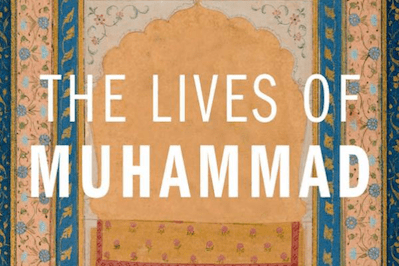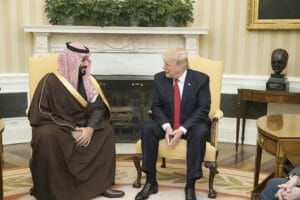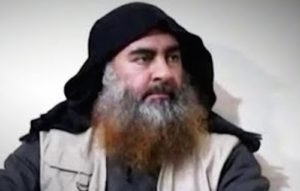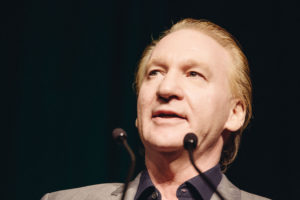Muhammad: A Life
Two new books, each by an accomplished scholar, address how Muslims and non-Muslims interpret Muhammad’s life in a changing world. Photo by Harvard University Press
Photo by Harvard University Press
Photo by Harvard University Press
|
To see long excerpts from “The Lives of Muhammad” at Google Books, click here. |
|
To see long excerpts from “Misquoting Muhammad” at Google Books, click here. |
“The Lives of Muhammad” A book by Kecia Ali
“Misquoting Muhammad: The Challenge and Choices of Interpreting the Prophet’s Legacy” A book by Jonathan A.C. Brown
The early-20th-century philosopher Muhammad Iqbal famously quipped, “You can deny God, but you cannot deny Muhammad.” Today, the nature of Muhammad’s legacy is fiercely contested by a variety of camps, both Muslim and non-Muslim. While anti-Muslim critics depict the prophet as a warmonger and pedophile, debate persists even within Muslim communities over how to best interpret and implement his life and practices. Two new books, each by an accomplished scholar, address the question of how Muslims and non-Muslims interpret Muhammad’s life in a changing world.
Rather than attempt to retrieve the “true” facts of Muhammad’s life, Kecia Ali, an associate professor of religion at Boston University, investigates the story of the story, tracing the development of the prophet’s biography in the centuries after his death, up to the present. She examines Muhammad biographies as a genre to which both Muslim and non-Muslim authors have contributed. Ali’s findings may seem surprising: “In the twenty-first century, it makes no sense to speak of Muslim views of Muhammad in opposition to Western or Christian ones.” Over the past two centuries, she argues, the glowing biographies by Muhammad’s followers and the polemical accounts by his critics have converged into a “single contentious body of literature.”
The modern telling of Muhammad’s biography appears in Ali’s work as a collaboration between Muslims and non-Muslims, revivalists and reformists, sympathetic outsiders and antagonistic critics who drew not only from a more or less stable outline of Muhammad’s life, but also from worldwide notions of great men and from certain controversies. The latter include Muhammad’s military adventures, his relationships to other religious communities and his sex life. Via modern printing and mass dissemination of literature, Muslim and non-Muslim authors read and responded to one another’s works. These exchanges shaped the way key events and characters in Muhammad’s life were treated by modern writers. For Ali, the development of Muhammad’s biography serves to undermine the famed clash-of-civilizations thesis, in which the West and the Muslim world exist as separate and self-contained wholes. In her view, the mutual influence between Muslim and non-Muslim writers presents a world of shared values and assumptions about what constitutes authoritative evidence, in which writers who aim to defend Muhammad and those who seek to discredit him together produce a body of literature that is neither East nor West.
“The Lives of Muhammad” is especially perceptive in discussing the criteria by which authors measure the truth or falsehood of the prophet’s mission. Premodern biographers sought to prove Muhammad’s prophethood with accounts of his special birthmark or his miraculous ascent into the heavens, while modern biographers reimagined him as an ideal statesman or social reformer.
Similarly, if we compare anti-Muslim writers from medieval Europe with the modern Islamophobia industry, we find that polemics against Muhammad have shifted in accordance with his critics’ changing values. Even as late as the 19th century, non-Muslim writers did not express the concern over Muhammad’s marriage to 6-year-old A’isha that we find in critics writing today. Ali’s coverage of historical shifts among Muhammad’s followers and opponents alike challenges our ideas about universal norms.
“Misquoting Muhammad” by Jonathan A.C. Brown, who teaches at Georgetown University, also examines the prophet’s contested life. Interestingly, the book takes its title from Bart Ehrman’s “Misquoting Jesus,” though Brown states that he’s not interested in subjecting Islam to the kind of critical textual history that characterizes Ehrman’s scholarship on Christianity. Rather, “Misquoting Muhammad” seeks to examine the ways in which Muhammad’s life becomes contested terrain in a variety of debates.
Brown possesses formidable knowledge of premodern Muslim scholars who sought to preserve accounts of Muhammad’s teachings and practices. In the modern world, this intellectual tradition faces increasing challenges, ranging from historical skepticism about the authenticity of its sources to arguments that stress reliance on the Koran alone. It is when Brown writes from his expertise that “Misquoting Muhammad” finds its strongest moments. He also excels at demonstrating the complexity within Sunni legal thought: His illuminating discussion of Muslim criminal justice goes a long way toward challenging images of Islamic law as an immutable code that demands the wanton chopping off of thieves’ hands.
However, Brown is guilty of significant omissions. A section that he titles “A Map of the Islamic Interpretive Tradition” is entirely a map of Sunni tradition. Sunnism claims a significant majority of Muslims and is thus commonly represented as generic, universal Islam. Reinforcing this problematic view, Brown presents Shiite Muslims, rationalist Mu’tazila theologians and antinomian Sufis chiefly as disruptive outsiders against whom Sunni jurists must struggle to preserve Islam’s integrity. On Brown’s map, they appear only for the sake of showing us the borders. In his analysis of modern Muslim debates, Brown likewise acts as a border patrol, this time in relation to various Muslim reformists. His book contrasts what Brown regards as classical Sunni tradition with interpretations of the Koran that depend on postmodern literary theories or Western Protestant notions about scripture. In “Misquoting Muhammad,” these thinkers represent the latest threat to Muhammad’s legacy by outside forces. While Brown expertly takes down certain assumptions of universal truth, he leaves others unchallenged.
In modern contests over interpretation, gender is a primary battleground. Brown confronts hot-button issues such as domestic violence and child marriage. His analysis conveys two essential assumptions: (1) people who care about things like feminism have been suckered by modern “secular truths” and (2) premodern Sunni scholars have already given us the tools we need to answer these questions. Though Brown takes domestic violence seriously, he dismisses contemporary concerns with the apparent sanctioning of wife-beating in the Koran (4:34) as resulting from “the condescending gaze of Western critics.” This approach brings mixed results. To recognize that Western cultural norms do not make for universal values is worthwhile (as many feminists, including Muslim feminists, have argued), but it does not follow that we must accept Brown’s conclusion about where authentic Islam can be found. Whether or not Brown convinces, however, he writes from an impressive depth of knowledge. Despite its blind spots, “Misquoting Muhammad” sheds light on the considerable dynamism and sophistication within the Sunni tradition.
“The Lives of Muhammad” leads its reader to rethink assumptions about history, biography and the imagined East-West divide; “Misquoting Muhammad’ makes a case for one vision of Islamic authenticity. With differing approaches, both works serve to skillfully complicate modern debates over Muhammad’s life and character, and his relevance for modern Muslims.
Michael Muhammad Knight is the author of nine books, including “Tripping With Allah: Islam, Drugs, and Writing.”
©2014, Washington Post Book World Service/Washington Post Writers Group
Your support matters…Independent journalism is under threat and overshadowed by heavily funded mainstream media.
You can help level the playing field. Become a member.
Your tax-deductible contribution keeps us digging beneath the headlines to give you thought-provoking, investigative reporting and analysis that unearths what's really happening- without compromise.
Give today to support our courageous, independent journalists.






You need to be a supporter to comment.
There are currently no responses to this article.
Be the first to respond.